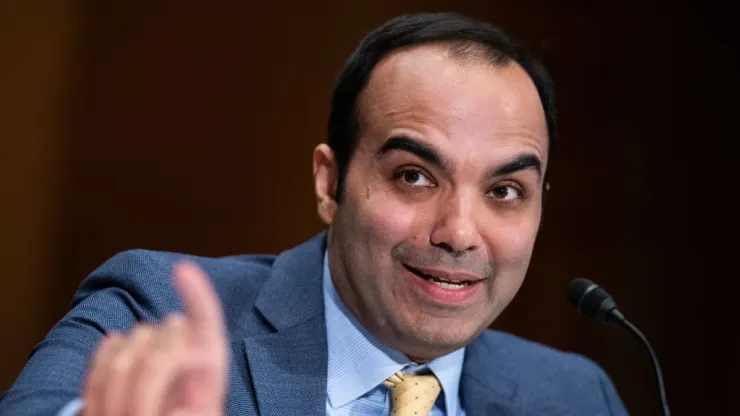The Consumer Financial Protection Bureau (CFPB) announced a groundbreaking rule on Tuesday, capping the typical late fee for credit card payments at $8. This significant reduction from the current average of $32 aims to alleviate the financial strain on over 45 million card users, saving them an average of $220 annually. This move is part of the agency’s effort to curb what it identifies as exploitative practices by credit card companies, which have leveraged loopholes to impose ever-increasing fees on consumers.
The initiative stems from a detailed review of market data and the effects of the 2009 Card Act, which had unintentionally allowed card issuers to escalate late fee charges. “For over a decade, credit card giants have been exploiting a loophole to harvest billions of dollars in junk fees from American consumers,” remarked CFPB Director Rohit Chopra. He highlighted the end of an era where credit card companies could cite inflation as a pretext for escalating fees to enhance their profits, thereby imposing undue burdens on borrowers.
The policy, expected to be enforced for card issuers with at least one million open accounts, also ends automatic inflation adjustments for late fees. The CFPB has stated that it may adjust fees to cover collection costs but will require issuers to justify higher charges. This measure does not impact interest rates directly but signals a broader crackdown on so-called junk fees, aligning with President Joe Biden’s campaign against unnecessary financial burdens on consumers.
However, the rule has drawn criticism from various industry groups. The Consumer Bankers Association and the American Bankers Association have voiced concerns over potential repercussions, including higher interest rates and reduced credit availability for consumers. They also challenge the process by which the CFPB implemented the rule, accusing the agency of prioritizing media attention over legal procedure. Republican Senator Tim Scott intends to use the Congressional Review Act to oppose the implementation of the rule.
Despite opposition, the new regulation marks a pivotal step towards safeguarding consumers from excessive credit card fees. With its implementation set for 60 days after its publication in the Federal Register, the rule represents a critical advancement in consumer financial protection. “Today’s rule ends the era of big credit card companies hiding behind the excuse of inflation when they hike fees on borrowers and boost their bottom lines,” Chopra stated, emphasizing the CFPB’s commitment to fair financial practices.
As the industry and regulatory bodies brace for the impact of this new rule, the conversation around consumer protection and financial fairness will likely intensify, reflecting the ongoing debate over the balance between financial institutions’ profit generation and consumers’ economic well-being.







